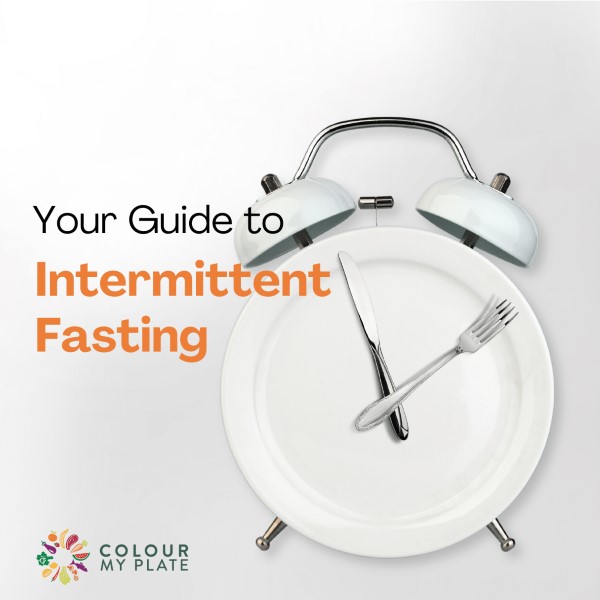
![]() 27 Oct 2023
27 Oct 2023
Are you ready to embark on a journey towards a healthier, more energetic you? Intermittent fasting might just be the key to unlock your full potential. In this blog post, we’ll explore the fascinating world of intermittent fasting, shedding light on what it is, the different types, its health benefits, and, just as importantly, who should steer clear of this trend. So, get ready, and let’s dive into the world of intermittent fasting!
It is not your typical diet plan; it’s a lifestyle that alternates between periods of eating and fasting. The idea is simple: restrict the hours in which you consume food to promote various health benefits. While it might sound daunting, intermittent fasting can actually be quite flexible and adaptable to your daily routine.
The 16/8 Method: This is one of the most popular approaches. It involves fasting for 16 hours and eating during an 8-hour window. For instance, you could skip breakfast and consume your meals between 12 PM and 8 PM.
The 5:2 Diet: In this method, you eat normally for five days a week and drastically reduce your calorie intake (usually around 500-600 calories) for the remaining two days. It’s essential to space these fasting days out.
The Eat-Stop-Eat Method: This approach involves fasting for a full 24 hours once or twice a week. For example, if you finish dinner at 7 PM, you wouldn’t eat again until 7 PM the following day.
The Alternate-Day Fasting: As the name suggests, this method alternates between days of fasting and regular eating. On fasting days, you either consume very few calories or none at all.
The Warrior Diet: This method involves eating small amounts of raw fruits and vegetables during the day and having a big meal in the evening.
While the world of intermittent fasting offers a variety of options, the 16/8 Method stands out as a safer bet for many. But why might some of the other approaches be riskier? Let’s explore this.
The risk associated with some of the alternative fasting methods often comes down to their potential for extreme calorie restriction and prolonged fasting periods. These methods can be more challenging for some individuals to adhere to, leading to disruptions in daily life and potential nutritional deficiencies.
The 16/8 Method, on the other hand, offers a more balanced and sustainable approach, making it a safer choice for a broader range of people. Always consult with a healthcare professional or nutritionist before embarking on any fasting regimen to ensure it aligns with your specific health goals and needs.
Now, the exciting part! What can intermittent fasting do for your health?
Weight Loss: It can lead to a calorie deficit, helping with weight loss by triggering the body to tap into stored fat for energy.
Improved Insulin Sensitivity: This fasting approach can help regulate blood sugar levels, making it a valuable tool for those with or at risk of diabetes.
Brain Health: Some studies suggest that intermittent fasting can enhance brain function, improving memory and cognitive abilities.
Heart Health: It may reduce risk factors for heart disease, including lower blood pressure, cholesterol levels, and triglycerides.
Cellular Autophagy: Fasting promotes a process called autophagy, in which the body cleans out damaged cells and regenerates new ones, potentially reducing the risk of certain diseases.
Longevity: While more research is needed, some studies have suggested that intermittent fasting might increase lifespan.
As exciting as intermittent fasting sounds, it’s not for everyone. Here are some people who should consider other approaches or consult a healthcare professional before diving in:
Pregnant or breastfeeding women: Intermittent fasting may not provide the necessary nutrients for the developing baby or growing infant.
Children and adolescents: Young bodies have different nutritional needs, and fasting can potentially interfere with their growth and development.
Those with eating disorders: People with a history of eating disorders should approach intermittent fasting cautiously, as it can exacerbate disordered eating patterns.
Individuals with certain medical conditions: If you have diabetes, low blood pressure, or other chronic health conditions, consult your healthcare provider before attempting intermittent fasting.
People on certain medications: Some medications require taking with food. Fasting may interfere with the effectiveness of these medications, so check with your doctor.
Intermittent fasting is an exciting and effective way to improve your health and well-being. With its various methods and numerous health benefits, it’s no wonder it’s gained popularity. However, it’s crucial to remember that it might not be suitable for everyone. Always listen to your body and consult a healthcare professional if you’re uncertain!

We noticed you haven't completed your delivery details.

Your message is sent